Thank you! Your comment has been submitted successfully. You should be able to view your question/comment here within a few days.
Error submitting comment. Please try again momentarily.
- All Info
- Reviews (229)
- Q & A (0)
- Videos (2)
- Photos
TruRyde Trailer Bearings Races Seals Caps - RG06-090
- Seals
- Grease Seals - Double Lip
- 3.376 Inch O.D.
- 2.125 Inch I.D.
- TruRyde
- (2) Double-lipped grease seals
| 2.125 | 3.376 | E-Z Lube and Oil 5,200, 6,000 and 7,000 LB Axles |
RG06-090 Grease / Oil Seals 10-10 (Pair) - Double Lip Seals
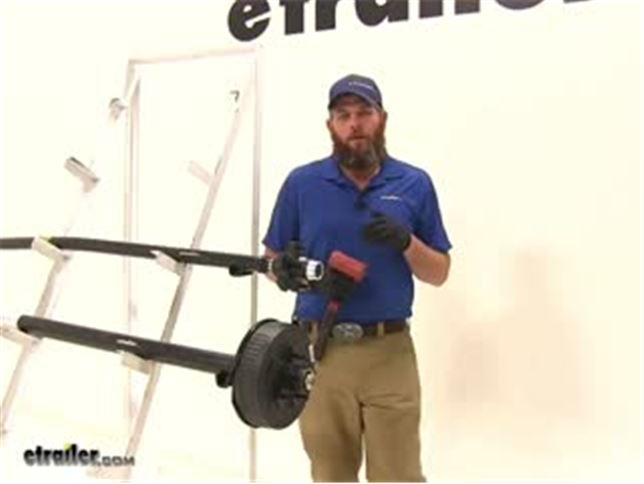
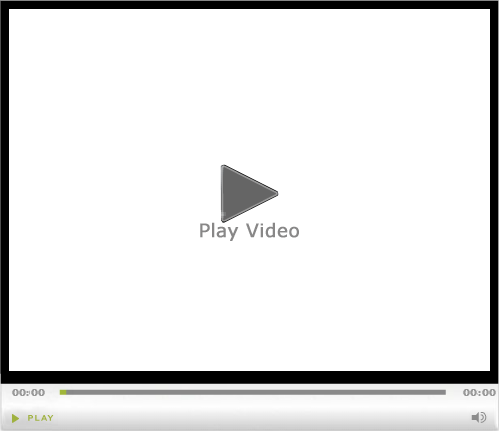
Videos are provided as a guide only. Refer to manufacturer installation instructions and specs for complete information.
Video Transcript for Trailer Bearings Races Seals and Caps Rebuild
Speaker 1: Today we're going to take you through the rebuild process on a couple of hubs. We've got an idler hub, and here we've got a hub and drum assembly. Works with electric rigs, but this can also work for just standard discs, if you've got a disc brake style setup.Basically what we're going to show you is how to get all of the bearings out. How to remove the seal. How to remove the race's if they're damaged, then get them replaced in the proper manner. We'll show you how to use an easy loop hub, which we have here.The first thing we are going to need to do is, get the grease cap off the end.
It can have either a rubber plug in it like this one does, or it can be a solid metal cap.These are pressed fit in there, basically by tapping on them on the back side. To remove them, a deadbolt hammer is typically what we're going to use. We're just going to start tapping as we go around. You'll see a little separation start right here, and slowly it'll work it's way off.Now the next step's going to vary a little bit depending on your axle setup. Do you see this is going to have a keeper that goes around the nut.
And that prevents that from being backed off, or removed. A lot of times you'll have a castle nut, which will have just little tabs that stick off, and there will be a cotter pin that passes through it. Just depending on your application, you need to get the keeper for the nut off. This style we just kind of pry out. A cotter pin you would just remove of course.Once we have that off ...
We'll start to take off the nut here, and the washer that's in behind it. Now yours should look a whole lot more dirty than this. There should be a lot of grease packed in, and through the hub, this one's brand new. We thought it'd be nice to show you the components before the grease was on .. Of our washer that comes off.And then here we're going to have our outer bearing.
Continue to pull that. We're gonig to have our inner bearing here. That sits in the backside of the hub. And we didn't put it in yet, we will show you how to put it in. But a seal would typically be covering the backside here. We'll show you how to use a seal removal tool, or another tool. To get that pried up and out. To get an access to that inner bearing.Now for a drum style like this, that process for disassembly is going to be just the same. One thing to keep in mind if you're using a disc brake setup. You'll have to remove the caliper before the disc is going to come off.Now once we have the spindle exposed, as we said this is going to be really greasy. We want to get all the grease removed, and the first thing we'll do is inspect it. We want to make sure that it looks just like what we have here. Everything's nice and smooth. We don't see any kind of discoloration, or any marring on the metal. Indicating that our bearing's got hot.If you do have any of those symptoms, at this point it's time to replace those bearings. You don't want to repack them. Get new bearings, and put in there. You might have a bearing that's come apart in here. Another surface to ensure is in good condition, is where your seal is going to go. That helps seal all the grease inside of our hub. With a damaged or broken seal, that grease is going to seep out. Either out of the hub, or in this case into our brake assembly.Now if your axle has brakes, we're also going to check the disc. Make sure it doesn't have any issues, or your hub. And this is going to be a hub and drum assembly. The brakes are going to ride on this machine surface. You're going to check that for signs of excessive heat, discoloration, or cracking. And this is our magnet surface. We'll check that surface for the same issues.Now inside the hub regardless if it's a disc brake, it's a drum brake like this. Or just a standard idler style hub. You're going to have an outer race. Would be right here, it's a small tapered piece of metal your bearing sits in, and rotates on. That's basically the outer portion of the bearing.You have the same thing here on the backside. This is called the inner race. Now if those show any signs of wear, overheating, or cracking. Those are also something we'll need to replace, which we'll show you how to do in just a minute.Now, with your brake assembly exposed, if you do have electric brakes like we have here. It's a good idea to check all the components for wear, cracking, maybe missing pieces. Check your pad thickness to make sure those are in good shape. Basically if you have a non working brake assembly and you put everything back together, you're just going to have to take it apart and do it all over again to get back to the brake assembly. This gives you a really good option to be able to change them out.And most applications are going to use a four, or maybe a five bolt flange to hold them in place. And you'll just remove the lock nuts, or sometimes you'll have a hex nut with a lock washer. You want to remove those, and then simply slide your assembly off after you cut the wiring.The friction material itself should also be checked for any kinds of cracking, or overheating. If you have any grease inside the system at all, it's likely it's gotten on those pads. It's a good idea to get those changed. Now as far as the removal of the races go, it's going to be just the same whether we're using an idler style hub like we have here. A drum brake like we have here. You can basically see where the idler is, here in the middle of the hub. It's going to go all the way around there, and we just have this extra material here to provide our braking surface.Now if you're doing a disc brake style job again, it's going to be just the same here with the races living inside of the actual hub portion. You'll just have the discs there for the brakes to make contact. We're going to use this little bit smaller one, it's a little bit easier to manage to show you how to get these out. We've talked about where the races are. The outer here, the inner being closer to the inside, but on the backside of the race there's a little lip. That lip's meant to stick out just a little bit further than the hub, and provide us an area to put our tool on, and help to drive that out.If you look all the way through there on that inner race, you'll see that little lip that sticks out just from the hub slightly, and it gives us enough area to use our tool on. Now generally to remove these you're going to use a punch, similar to this. Some guys will use a screwdriver. Or a piece of pipe. If you have a piece of pipe that's small enough to fit inside of that diameter, you can take that down through and allow it to rest on that lip.Use our punch, and then just need a hammer. And we'll start working that out. We're going to tap all the way around. Kind of equally, and evenly apply the force to get it to come on out of the bottom for us.You can see now as it starts to come out there's going to be a little gap created between the hub and the race. And we can just keep going, bringing it on out. Then you can inspect the inside of the hub surface there. Make sure no damage or anything has occurred, and repeat that same process for the outer race if you plan on removing and replacing that one.Now in the outer flat edge, you can see we're going to have our tapered edge on this side. If we roll our race over to the flat side, typically there's going to be a manufacturers part number on there. That will help you identify which race it is, that you need to go back in your system. If those are rubbed off, worn off, if you can't read them. You can measure the outside, to outside diameter of the race here. It's a good idea to use a micrometer to get it exact.Now here's your basic micrometer. And again, the outside of the race is what we're going to need to measure. You want to go . I set the thickest point there. Looks like this one's going to be about 1.98. That's going to be the measurement you'll want to supply.Now while we've got this out, let's also look at the proper way to measure our bearing. Instead of the outside for the bearing, we need to measure the inside diameter. That's going to be pretty simple. Let's pull that out, find the largest measurement we can. Which here, looks like it's going to be 1.03. With that information, we'll be able to get the correct bearing, and the correct race, so they'll fit together properly and make a full bearing kit for us.Now here's the race, we're going to show you how to get this put back in. Basically just going to press fit inside of our hubs. We need to get it down on there. Kind of like that. And you'll have a couple options. A lot of times you're going to see do it yourself or at homer, just going to use a wooden block. Just place it on there. That's going to get you started, but at that point you'll struggle in getting it to go all the way down into it's seat.Now to take care of that problem, there are several seal drivers that are available. Seal and race drivers that are available out there on the market. It's designed to fit down inside of our race, inside of our hub and get it down there where it needs to go. This is part number ptw83020, has several different sizes, even if you have multiple trailers it's going to do the job.Now the side with the angle on it, is designed to fit down inside of our race. If we use the other side, that's going to be for driving your seal into place. Just want to hold it, and take it on in with your hammer. You'll see, you just want to insure that our race is all the way up against that line on the hub where it's supposed to mate to.Now when it comes time to pack your bearings you're going to have several different ways of doing this. You can just use your hand, is the traditional method. That's going to be the method probably reserved for the very occasional trailer work kind of situation. If you do it once or twice a year, probably get away with it that way.Next you would go to a, kind of a sandwich funnel style almost. If you look inside of there, you can see the bearing. It's located between the two pieces. Just use a grease gun. Start filling that with grease, and that's going to fill our bearing for us. And the third, with this one you're just going to place your bearing down and in. It should be pretty close to center. And then we've got our cone her that's going to go down and secure that.Now I think this style, wastes a little bit more grease than what this style will. This has a dust cap. You can see, you can keep your grease in there, put your dust cap on there and save it for later use. This will be if your going to do it every couple years. And this particular style would be if you're a more regular user.Let's start by showing you how to use a bearing packer. Similar to this. Again, we've just got our grease inaudible 00:11:07 here on the top. And then just slowly start to fill it. Now I like this style quite a bit. I think even regular users might enjoy it, because you can get a really quick visual look at that bearing. You're not going to have to overdo it, or have to much grease.You can kind of see in there now, we're starting to get grease to come out of it. Couple more pumps, we'll be good. You can see we've got grease coming out all the way around. Where all of our bearings are. Got a little bit of excess there. Just take that around the outside of it. And then we should be able to lift it off. And now you can see what we we're talking about. Just a little bit of excess there, that you're just going to wind up wasting.Now we'll take our bearing, we're going to place it right down in our race. And then we'll cap off the back with our seal. Right now our seal's going to fit in just like our race did. It's going to have a little bit of a pressure fit to it. Now very often in this situation, I see people using the four by four method. Kind of here, just placing that on and tapping it. As an option though, if you do have one of these. You can see that's designed to fit right on the top of the seal. And help drive it in.The biggest thing here is, just going to be getting it driven in squarely. You can see, this side's in a little bit further than this side. I'm going to start this side first. Now since we didn't have the opportunity to show you before, we're going to take a look at pulling a seal. Now this is a seal puller, we carry this on our website part number ptw1219. This is meant to hook underneath the seal. And then you kind of pull up on it, and just like our race you'll have to work all the way around that edge. Just bringing it out a little at a time.If you don't have that available. Another option would be a screwdriver. You just kind of get that under the seal, and turn it. And see, that'll allow you to also pop that out. We've taken care of our race. Our inner bearing. Our seal. The last component, before we put our hub back in place is going to be our outer bearing. Now with this bearing, I'll show you the hand packing method.This is definitely . Slightly dirtier method than the bearing packer. When we get grease on our hand we want to look at the larger side of the bearing. This is the smaller side. We have a larger side In between the inside and outside there's a gap. We can see our rollers in there. We want to grab that, and use that gap and shove grease inside of it. Now this is going to take a little bit, you want to work in the same spot until you get the grease pushed all the way through. We can see on the top there we've got a little bit starting to come through.And once we push it in the bottom, and you see it start coming out the of the top in those little drips, it's going to indicate that, that section's fully packed. Just need to work all the way around their outside edge now and do the same thing. Alright, once that's all the way around . The bearing will be ready for use.Now one more thing I like to do. We can see our inner bearing there, and our outer bearing. Well between the two, got a pretty big gap in there. If you'll take a . Pretty good amount of grease. We're just going to go all the way around. See how we can go all the way around the inside and just line that really well. The more grease we have in here, the less chance we have of any moisture getting in there, which can cause corrosion, rust, pitting. Pretty much things we do not like when it comes to bearings, races, and hubs.Put plenty of grease in there. And then this one does have the easy lube spindle, that'll even fill it in more. Now we can get our assembly slid on. I like to keep my thumbs on that outer bearing, just to prevent it from . inaudible 00:15:28 pushed off there. Now we can put on the original hardware that we removed, in taking off our hub the first time. In our case, we had our washer and our nut.Now most commonly you'll see pliers similar to this being used. We basically want to get that tightened down. Once it's fully tightened down you'll feel some resistance in the hub. We back it off just slightly. That'll give us a little bit more freedom of motion there. Something you don't want however . Is any movement in, or out on your hub. You want to be sure that everything is compressed, and you don't have what's called end play. Which would be the play in and out.Once we've got that set, then you'll put on whatever tight keeper yours came with. Get that put back in place. Now with an easy lube style hub, you're going to place your grease gun on the end, and then you can just fill the remainder of that hub up.Now for your typical applications, you're either going to have a solid cap, or a cap that'll have a rubber plug in it. A solid cap's going to be for an axle without the grease inaudible 00:16:51 here on the end. Goes on there. Just knock it on with your rubber mallet. Same with the one with the plug. Just gives you a removable area there, be able to cap that off.We'll show you how to put that on. Now as alternatives as well, a lot of times on boat trailers and marine kind of situations. You'll see a bearing buddy. This is going to apply a little bit of pressure on the grease, you'll fill it up. This kind of comes out just a little bit. That applies constant pressure on the grease to make sure we don't have any air, or anything like that. Then there is also an oil bath hub available. Now this is going to be for use with seals that are going to be designed specifically for oil bath use. You'll have to change that seal.We're using a double lip seal. There are also single lip seals available. Of course a double lip seal is going to give you just a little additional security. Keep that in mind when you order. But let's get this knocked on there now so you can see how that works. We just want to take the cap, we're going to center it. This is going to be very similar to what we did with the seal. And then just gently start tapping it around the outside. And it'll seep down on there for you.It's really going to be the same thing that you'll do with any of the end caps. Now with this side done, it's a good idea to take care of all the other hubs. Get them all on the same maintenance schedule. And as long as you'll periodically check the grease, take your trailer out for a trip occasionally. Just to keep everything lubricated. It should extend the life of these parts, and give us years of good service.
Customer Satisfaction Score:
99% were satisfied with this product
1% of customers were not satisfied
- Wrong item was ordered
- etrailer mistake
- Did not arrive in time
Customer Reviews
10-10 Grease or Oil Double-Lip Seals - Qty 2 - RG06-090
Average Customer Rating: 4.8 out of 5 stars (229 Customer Reviews)
Seals arrived 3 days of original estimated delivery, this was much appreciated since my boat is unusable while the trailer is being repaired. These seals are special and etrailer had them in stock. They fit my Dexter axles on my Pacific trailer which have a slightly smaller hub seal diameter than most of the other trailers. They are also designed to handle both grease and oil bath systems, I'm converting to oil bath.
Perfect fit on my old axles and hubs.

These double-lip grease seals are OK. I used them on my Kodiak hubs when I converted to an oil bath grease system. The shell is stamped metal which deforms slightly (dimples) when installing on hubs they have an interference fit. 3 out of the 4 hubs sealed fine. The 4th I used a much more expensive Timkin seal that has a sold metal insert to solve the dimpling problem, it worked better.
Ordered seals for 303rls reflection last May. Rechecked site and reordered seals for 2.125 spindle vs 2.250 spindles. Not sure which is correct until I repack wheel bearings. . Don’t know if my error or not.

Worked as expected. Just make sure you get the correct size.
Received parts very quickly. Quality products. Very pleased. Had to replace pads due to easy lub system failure. Grease pumped in past seals and saturated pads was on and in everything. More cost effective to replace whole assembly. Assembly fit perfectly replacing lippert factory parts.
Excellent service, and excellent product quality, and very excellent price
picture of new brake assembly from etrailer
Fit the drums perfectly
I was having a terrible time locating seals for my trailer so I went back to my Canadian supplier (Hitchweb) and without hesitation they gave me the contact info for etrailer. The parts person was knowledgeable and committed to find seals for my trailer. Shipping was very quick and the seals are a perfect match, thank you. I will definitely use etrailer again. Randy
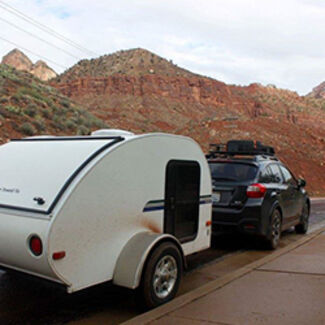
Randy

6/16/2022
I use these on a 14’ dump trailer that is used weekly in all kinds of Canadian weather and am pleased to say these seals have held up very well with no leaks and we check them regularly as a safety plan.
This is my third order from e-trailer and like the others I have been well pleased. I was having trouble finding these grease seals for my travel trailer but e-trailer had them in stock and at a reasonable price. I installed them and they fit perfectly. I would highly recommend this company.
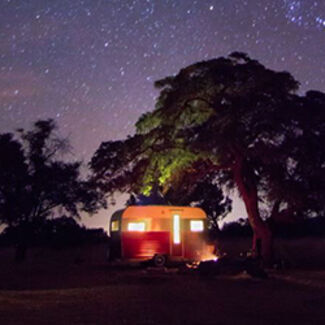
Phil B.

5/18/2014
The grease seals are still doing what they are supposed to do. That is keep the grease where it is supposed to be. Not on the braking parts.Phil B.
Great looking seals, purchased these seals as a spare replacement when repacking my boat trailer bearing. Good pricing and customer service.

The bearings and seals were an exact fit and worked as expected. Teresa J. is very knowledgeable and helped me figure out the right parts, even though I did not have axle data tags to work with. I highly recommend etrailer and will order from them if I need any parts in the future.
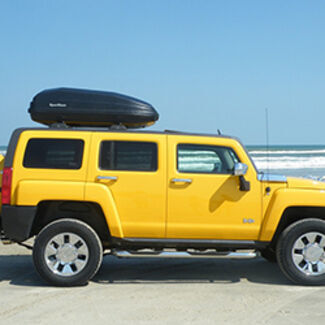
Kent C.

4/17/2021
Everything is still working exactly as it should. I still consider this to be an all around great experience.
Seals are like bearings , they're as good as they do their job. These look excellent and with proper installation and a perfect mating surface, they should keep the grease where it belongs.
Fit and installed as they should.
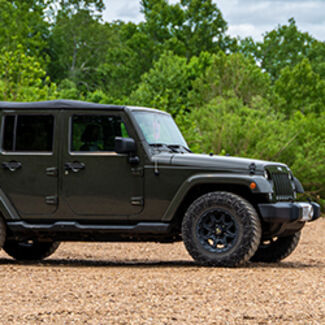
Chuck H.

1/28/2015
These were installed in old hubs on new axles and with new bearings. The grease has stayed exactly where it belongs.
I installed, and adjusted the 4-items : AKHD-655-6K drum assembles without any problems.
Also glad I ordered the extra RG06-090 seals with 2.125 diameter because they turned out to be the correct ones.
I highly recommend etrailer parts to anyone looking for good quality products.
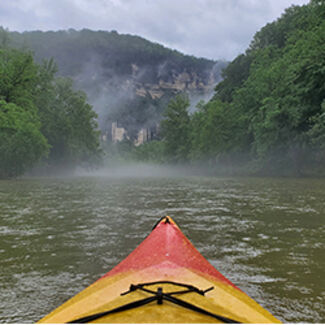
Eugene G.

6/23/2018
The AKHD-655-6K drum assembles are working just fine. Thanks for the quality product.
I gave part numbers and bearings are correct BUT grease seals are wrong (needed to be double lip seals and single seals came plus not right part number )


Jenny N.
11/1/2021
I will have our customer service team reach out to you.

Bought a used skid steer trailer that needed all new bearings and electric brakes. It was easy to find the correct bearing kit on etrailer and installation videos on the site made it a breeze for a DIY'er.
This is the second time I have ordered these seals. Have been very pleased with the previous ones. They do what they are supposed to do, keep grease from getting on the brake liners.
I have ordered several items from etrailer, hitches, bike rack and other items. Have been very pleased with the prices and promt shipping. etrailer will continue to be my go to place whenever I need trailer parts or tow vehicle parts.
Phil B

Do what they should -- seal. Have placed about 4000 miles and 50 launches with hot bearings and no leaks. Gone are the days of milky oil and multiple changes/top ups each year.
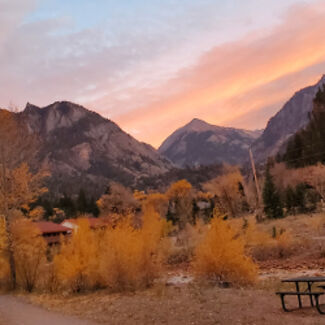
Greg

3/16/2020
1 yr update: Still holding oil in and water out. Good purchase
Always great customer service
I am very happy with the etrailer team Prices are good as well as service, I have recommended your co. to several people in the Va,Nc area I can get product from you at a good price with good service and the free delivery is a plus also, I think your co. will continue grow with your current business plan. Can't loose with good service and a very competitive price. I just sold some of your parts to my neighbor and he had them delivered to my address 4 trailer wheels, Brakes for 4 wheels.
Ordered everything I needed on a Sunday and even spoke with a person. Quick shipping to boot..

These seals worked well. Easy to install with no problems or leakage since installation.
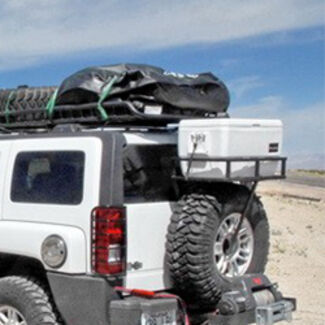
Joe

10/26/2018
They have given me good service up to this point. I installed them on a 1972 travel trailer that I refurbished. Now I am a Glamper.
Good quality double lip seal. Great product at a good price. Delivery from etrailer is fast and easy.
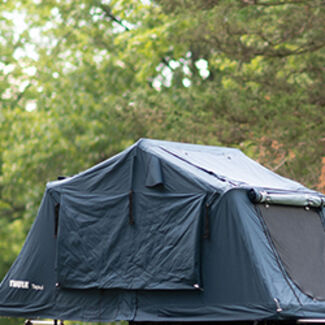
Brian S.

4/9/2015
No issues, great follow up.
Wheel seals Excellent Quality. As descr ibed

Passin T.

7/10/2014
Just great. WEepulled our trailer, a 2004 Arctic Fox Travel trailer around 13,000 miles with no problems. I have to pull the bearing soon and regrease. Karl
See what our Experts say about this TruRyde Trailer Bearings Races Seals Caps
- Is it Easier to Replace or Repair 12 Inch Dexter Electric Trailer BrakesFirst, if grease got on the brake shoe pads they are pretty much done. You would not be able to get all of the grease and I would not recommend taking that risk anyway. We do have individual parts available for many brake assemblies. For an adjuster spring use # BP08-070. For actuating arms use # BP02-230 for the left and # BP02-240 for the right. For the adjuster use # BP10-060. Honestly I would replace all 4 assemblies and be done with it. That way you will get all new parts and they...
view full answer... - Will The 7,000LB Axle Work as a Replacement For a Bent 6,000LB Axle With 4" Drop and 95" Hub Face? Yes, the Trailer Axle Beam # e95GR which is rated for 7,000lbs can be used as a replacement for your 6,000lb axle. These size axle do use the same #42 size spindle which has a 1.75" inner diameter on the inner bearing and 1.25" inner diameter on the outer bearing. There are some manufacturers who use different inner diameter grease seals for the spindle. The new axle is designed for the Grease Seals # RG06-070 with a 2.25" inner diameter. So if you have the smaller 2.125" inner diameter...
view full answer... - Looking for Grease Seal to Replace Al-Ko # 568862 Seal on a 5200 Lb Al-Ko AxleIt took a bit of cross-referencing, but I found that the 10-10 grease seal, part # RG06-090 is the correct replacement for the Al-Ko 568862 seals. You can confirm this by checking the ID of the hub bore where the seal would sit. The ID should be about 3.376 inches. The 10-10 seal has an ID of 2.125 and an OD of 3.376 inches.
view full answer... - How to Pick Out Replacement Grease Seal for a Dexter 7000 lb AxleYou are going to need to measure your current spindle to determine whether or not you need a 2-1/8 inch seal like # RG06-090 or if you need a 2-1/4 inch seal like # RG06-070. You will need to take the measurement of the spindle where the grease seal rides. See attached picture.
view full answer... - Which Seal Goes with a Trailer Hub that Takes 15123 and 25580 BearingsThe only way to know for sure which seal you need is to measure the inner diameter with a set of dial or digital caliper. The issue is, which you may have already determined, is that the inner and outer bearing numbers that you have are associated with hubs that will either take seal # RG06-070 with inner diameter of 2.25 inches or seal # RG06-090 which has a 2.125 inch inner diameter. You can also measure the spindle where the seal goes using the calipers. measuring the spindle will actually...
view full answer... - Bearings and Seal for Replacing UFP Dexter 41062 Hub with Kodiak Hub and RotorI spoke with my contact at UFP Dexter and he said that your 41062 hub uses inner bearing 031-030-02, outer bearing 031-032-02, and seal 010-181-00. This is the equivalent of inner bearing # 25580, outer bearing # LM67048, and grease seal # GS-2125DL which can all be found in the bearing kit # BK3-310 along with the races for the bearings. Unfortunately the bearing kit # DBRKHW85G that you purchased isn't the same as the grease seal has a slightly larger diameter but that can easily be fixed....
view full answer... - What Inner Diameter Does Grease Seal for 5,200 lb Trailer Axle Hub HaveFor trailer axles that have a capacity of between 5,200 and 7,000 lbs the grease seal requirement can be one of two options without any real rhyme or reason which is pretty frustrating. Sometimes the spindle will require the smaller diameter and other times it's the larger diameter. To verify what you'd need will require you to measure the spindle on your trailer or get the bearing number out of the hub currently.
view full answer... - Replacement Bearings Races and Seals for a 1974 Midwest Boat TrailerBased on the measurements that you have provided, check out the outer bearing # LM11949 and race # LM11910. This bearing and race combinations has an inner diameter of .750 inches and an outer diameter of 1.781 inches. For the inner bearing and race you will need bearing # LM67048 and race # LM67010. The inner diameter for this bearing and race combination is 1.250 inches and the outer diameter for race # LM67010 is 2.328 inches. We do not have a race with an OD of 2.30. The grease...
view full answer... - Disc Brakes, Tires, and Wheels for Timbren 5,200 Pound Axle-Less Trailer Suspension SystemFor 5,200 pound axles such as # ASR5200S04 I recommend disc brake kit # K2HR526D which will accept wheels as small as 15 inches. Only certain kits with certain bearing sizes will fit the spindles on the axle-less systems so 15 is as small as you can go. That means a 225/75-15 tire and wheel combo, see link. This size has an outer diameter of 28.4 inches. For a tire and wheel in this size that has a higher enough capacity for 5,200 pound axles I recommend # AM32680 rated for 2,830 pounds...
view full answer... - Trailer Hub Drum Compatibility with Different Seal to Fit Spindle for Cost SavingsThe Dexter Trailer Hub and Drum Assembly # 8-219-4UC3-EZ is the exact same hub as # 42866UC3-EZ with the same bearings and races. The inner diameter of the seal is the only difference so you can swap out the seal because the outer diameter is the same at 3.376 inches. If the spindle measures 2.125 inches, then you can use the # RG06-090 seals with # 42866UC3-EZ hub assemblies.
view full answer... - Identifying the Bearings and Seals on a Lippert Trailer AxleI checked with Lippert and could not find any information on NV304664. Do you know the capacity of the axle? If it is a 7,000 pound axle then the likely inner bearing is # 25580 and the outer bearing is # 14125A. If a 2-1/4 inch seal diameter is needed it is a 10-36 seal, # RG06-070. Or it could also be a 2-1/8 inch diameter seal # RG06-090. If it is a 3,500 pound axle it likely uses inner bearing # L68149 and outer bearing # L44649 and a 10-19 seal # RG06-050. To determine which hubs...
view full answer... - Will a 2-1/8 Inch Grease Seal Fit in Place of a 2-1/4 Inch Grease Seal for Hub # 8-201-51UC3-EZThe 2-1/4 and 2-1/8 grease seals are usually interchangeable but manufacturers have started going to the 2-1/8 model for a tighter fit. So what you would need is # GS-2125DL for one seal or # RG06-090 for a pair. We can't swap the seals out of a kit though so they would need to be purchased separately. the other option is to use regular hub and drum # 8-201-9UC3-EZ. It isn't galvanized but does come with the 2-1/8 inch seal.
view full answer... - Determining Correct Replacement Oil Bath Hub For 2003 Mastercraft Single Axle TrailerAssuming you are meaning replacing the entire hub, you will first need to remove the oil bath cap to access the spindle nut. There will be a cotter key holding the nut on, or a clip which will need to be removed next. After that remove the nut and slide off the hub. If you have not already found the correct replacement hub then while the hub is off look for the bearing numbers stamped in the face of both the inner and outer bearings as shown in the included picture of the # L44649. If...
view full answer... - What Is the Difference Between the 10-36 and 10-10 Grease Seals?The difference between the Grease Seal 10-36 # 10-36 and the 10-10 Grease or Oil Double-Lip Seals # RG06-090 is going to be the inner diameter. The # 10-36 seal has an inner diameter of 2.250" while the # RG06-090 has a 2.125" inner diameter. Both of these seals will work with your 7K axle and they both share the same outer diameter of 3.376". In order to pick out the correct grease seal for your axle, you'll just need to either measure your spindle where the grease seal sits or look...
view full answer... - Which Grease Seal is Used with Dexter Trailer Hub Assembly # 8-201-9UC3-EZThe seal that comes with hub # 8-201-9UC3-EZ is a 10-10 seal. For a pair use # RG06-090. These seals have an inner diameter of 2.125 inches and an outer diameter of 3.376. They are used with E-Z Lube and Oil 5,200, 6,000 and 7,000 LB Axles. I have included a link to a video review of the seal for you. I could not find a seal with the numbers you provided but if you have hub # 8-201-9UC3-EZ then the correct seals are # RG06-090. There is a 10-36 seal, # RG06-070. This seal has an inner...
view full answer... - Grease Seal for EZ Lube Trailer Hub with 25580 and 15123 BearingsThere are 2 seal sizes associated with the bearings you have on your trailer. One of them has an inner diameter of 2-1/4 inches, # RG06-070, and the other has an inner diameter of 2-1/8 inches # RG06-090. You could use either size but the 2-1/8 will provide a tighter fit.
view full answer... - Capacity of # 42655UC1 Trailer HubThe hub you mentioned, # 42655UC1 is compatible with a 6,000 lb capacity axle. Each hub is rated at 3,000 lb max, or 6,000 lb per axle. For a tandem axle set-up, the hubs would provide a 12,000 lb capacity. Assuming that your existing hub uses a # 25580 inner bearing, and a # 15123 outer bearing, this would be the proper replacement. Four hubs would equal a 12,000 lb capacity for a tandem axle trailer. These hubs are compatible with grease seals that use either a 2.25 (#RG06-070) or a...
view full answer... - What Grease Seal Do I Need for Boat Trailer That Uses LM67048 and 25580 BearingsWith bearings numbers of LM67048 and 25580, we offer two different grease seals, # RG06-090 which has an inner diameter of 2.125 inches and # RG06-070 which has an inner diameter of 2.25 inches. To determine which is the correct seal for your boat trailer, you will need to use a digital caliper to measure the portion of your spindle where the grease seal rides. I have attached a photo to illustrate this area.
view full answer... - Replacement Hubs for 7,000 Pound Axle With 15123 Outer and 25580 Inner BearingsThe answer to your question depends on the bolt pattern you need. We have one hub that actually uses a # 15123 bearing which is the # 8-174-5UC3. This has a 5-spoke utility bolt pattern. More than likely you have an 8 on 6-1/2 bolt pattern on your trailer. If that is the case you can use the # AKHD-865-7-1-K. The # 14125A outer bearing has the same 1.25" inner diameter so it will fit your spindle. However, I recommend measuring to find the inner diameter of your grease seal. The included...
view full answer... - Which Replacement Grease Seal Goes with Inner Bearing 25580On hubs that use 25580 as the inner bearing the axles could be anywhere from 5,200 pounds to 8,000 pounds. The most likely is that it is a 6,000 pound axle. So the seals that are used on those axles are going to be # GS2250DL, # RG06-070, or # RG06-090 and possibly others. The differences are the sizes. # GS-2250DL is 2.250" ID - 3.376" OD # RG06-070 is the same as above except that it is a set of 2 seals # RG06-090 is a set but the IN is 2.125" and the OD is 3.376" If you can measure...
view full answer... - Replacement Brakes and Seals for a 2003 Keystone Montana 3255RL 5th Wheel TrailerYes, the Electric Trailer Brake Kit # AKEBRK-6 will fit your 12x2 AL-KO drums. There are actually 2 different seals that are common among 5.2K - 7K axles like what you have. The first are the seals # RG06-070 which have the 2-1/4" ID and 3-3/8" OD like you mentioned. The second are the seals # RG06-090 which have a 2-1/8" ID and a 3-3/8" OD. The only ways to determine which is correct is to remove your hub/drums and see if you can find a part number on your current seals and/or use a digital...
view full answer... - Replacement Brake Kit and Hubs/Rotors For a Continental Trailer With 5,880LB Trailer AxlesI recommend the Kodiak Disc Brake Kit # K2HR526D for your continental trailer. This kit includes the calipers, mounting brackets, and 12" hub/rotor to fit on one of your axles. You will need the Bearing Kit # DBRKHW6EZ to work with this brake kit. The bearing kit includes grease seals with a 2.250 inner diameter. If your spindle is the smaller 2.125" you will need the Grease Seals # RG06-090 to fit the smaller spindle.
view full answer... - Do Hub Races Have to Be Replaced Each Time Bearings Are ChangedYou can check the condition of your hub's races by carefully removing all bearing grease with a rag to expose the actual surface of the races. When they are completely free of grease, etc., inspect them for any signs of scoring (very slight scratches, ridges or wear marks) and for discoloration. If the race surfaces are completely smooth and free of discoloration (most often caused by heat build up) then you can leave them in place and just replace and re-pack your bearings. If you are...
view full answer... - Replacement Double-Lip Grease Seals to Replace AL-KO 568862 or Hayes 09103304LIt took a bit of cross-referencing, but I found that the 10-10 grease seal, part # RG06-090 is the correct replacement for the Al-KO 568862 seals. You can confirm this by checking the ID of the hub bore where the seal would sit. The ID should be about 3.376 inches. The 10-10 seal has an ID of 2.125 and an OD of 3.376 inches.
view full answer...
Do you have a question about this Trailer Bearings Races Seals Cap?
Info for this part was:











At etrailer.com we provide the best information available about the products we sell. We take the quality of our information seriously so that you can get the right part the first time. Let us know if anything is missing or if you have any questions.
















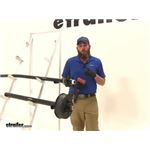
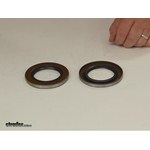






























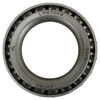
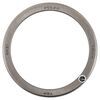




















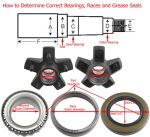
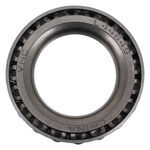
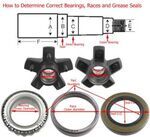
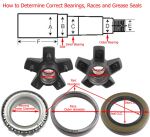
Steve S.
7/18/2023
Seals are still working fine in my oil bath system. I did a 2500 mile round trip a few months ago, no leaks.